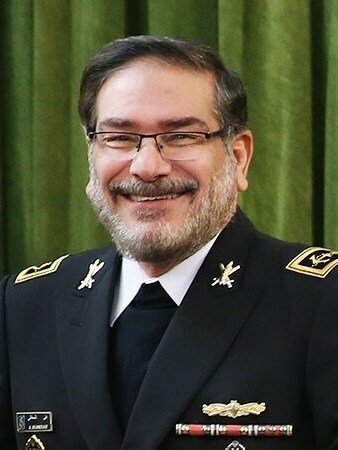Ali Shamkhani is a prominent figure in Iran’s political and military landscape, known for his extensive career that spans both strategic military leadership and high-level national security roles. Born on September 29, 1955, in Ahvaz, Khuzestan Province, Shamkhani is an ethnic Arab-Iranian and a practicing Shia Muslim. His background in engineering, combined with years of military experience, positioned him as one of the most influential security figures in the Islamic Republic.
Shamkhani rose to prominence during the Iran–Iraq War in the 1980s, where he played a critical role in the planning and execution of Iran’s naval and guerrilla warfare strategies. His effectiveness in the conflict earned him key leadership roles, including command of both the Islamic Revolutionary Guard Corps (IRGC) Navy and the Iranian Army Navy, a unique distinction in the Iranian military structure. His dual command underlined his reputation as a skilled strategist and reliable commander.
After his military success, Shamkhani transitioned into the political sphere. In 1997, during the presidency of Mohammad Khatami, he was appointed as Iran’s Minister of Defense and Armed Forces Logistics. He held this position until 2005, during which he focused on modernizing Iran’s defense systems and improving the country’s regional defense diplomacy. His leadership helped develop deeper cooperation with allies and promoted Iran’s defense independence amid growing international tensions.
In 2013, President Hassan Rouhani appointed Shamkhani as Secretary of the Supreme National Security Council (SNSC), one of the most powerful positions in Iran’s security and foreign policy establishment. In this role, he was a central figure in Iran’s nuclear negotiations with global powers and was involved in shaping regional strategies concerning Iraq, Syria, Lebanon, and Yemen. As a key national security strategist, he often coordinated closely with Hezbollah, the Syrian government, and Iraqi militias, playing a behind-the-scenes role in Iran’s regional power projection.
Even after stepping down from the SNSC in May 2023, he remained an active player in Iranian politics. He was appointed as a senior advisor to Supreme Leader Ali Khamenei, a role that allows him to continue influencing Iran’s military and geopolitical strategies. His presence at high-level political meetings and state ceremonies signals his ongoing relevance in shaping Iran’s internal and external policies.
Ali Shamkhani’s linguistic and ethnic background also plays a diplomatic role. As a fluent Arabic and Persian speaker, his Arab-Iranian heritage has been a bridge between Iran and neighboring Arab states, especially during sensitive negotiations or outreach efforts in the Persian Gulf region. This background has allowed him to communicate effectively and build trust across cultural and political boundaries.
In mid-2024, Shamkhani became the subject of international attention following an Israeli attack that reportedly targeted top Iranian officials. Initial claims suggested he had been killed during the operation. However, those rumors were quickly proven false when Shamkhani reappeared in public two weeks later. In a rare interview with Iranian state television, he described how he had been trapped under rubble for three hours after the attack, during which he remained conscious and even performed the Fajr prayer while lying down. His detailed account of survival drew attention both within Iran and abroad, offering a humanizing glimpse into the dangers faced by senior officials amid rising tensions in the region.
Following the incident, Shamkhani attended the funerals of several military commanders and scientists who were killed in the same strike. His public presence helped calm speculation and reinforced his image as a resilient and steadfast leader. Despite the destruction of his home and the intensity of the attack, he continued to serve in his advisory capacity, proving his enduring role in Iran’s defense and leadership structure.
Ali Shamkhani remains one of the most seasoned and respected figures in Iran, with a career that reflects the country’s shifting strategies over decades of war, diplomacy, and internal transformation. His unique combination of military service, political influence, and religious loyalty makes him a key architect of Iran’s national security doctrine.







